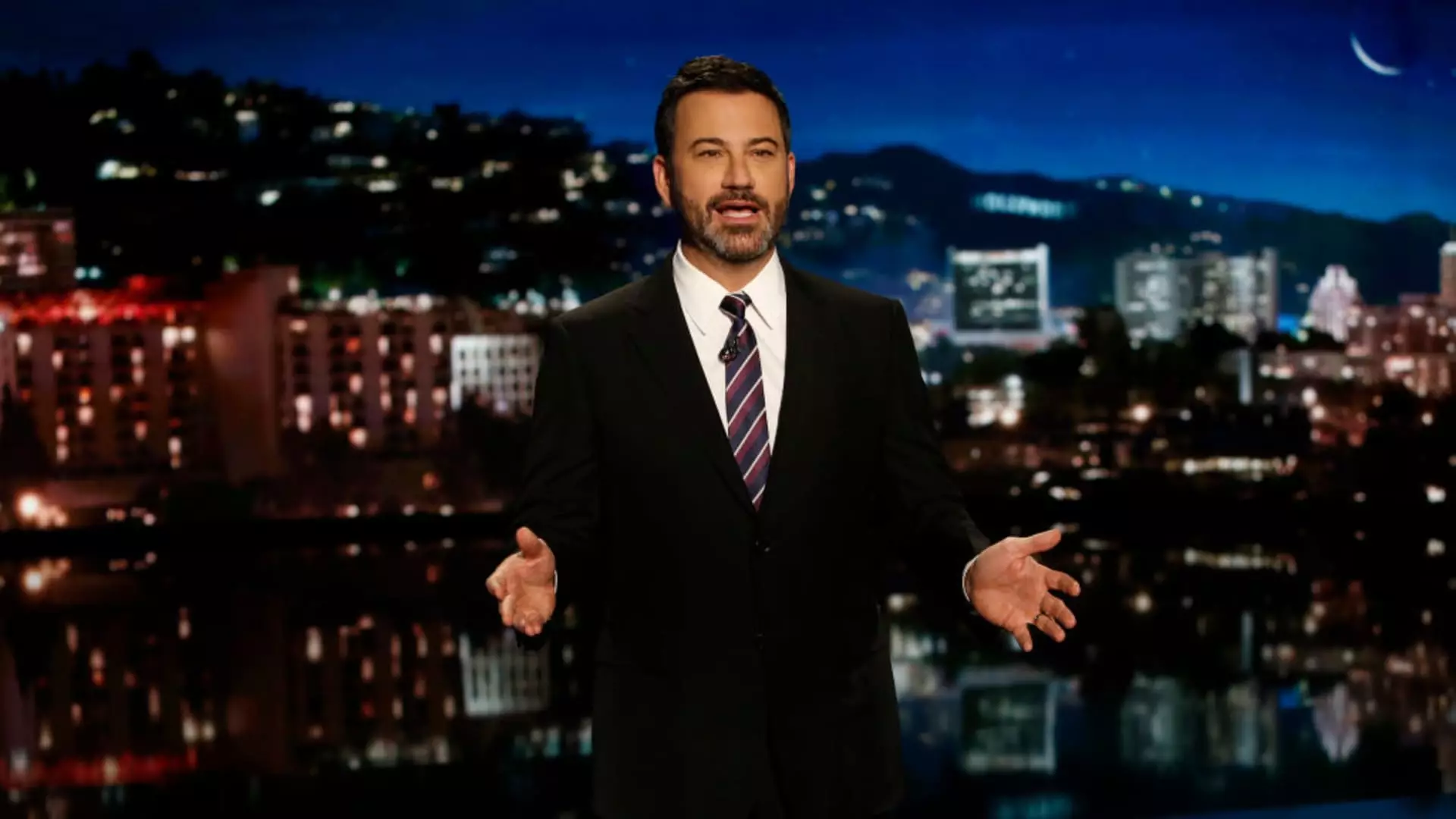In an age where polarization seems to deepen by the day, the suspension of Jimmy Kimmel’s show highlights an unsettling trend: the thin and brittle boundary separating free expression from institutional censorship. What started as a routine late-night monologue swiftly morphed into a battleground for ideological supremacy, revealing a disturbing tendency among powerful entities—be it corporate giants like Disney and ABC, or government figures—to wield influence under the guise of maintaining civility. Yet beneath this veneer lies a troubling suppression of dissenting voices, cloaking a deep-rooted fear of challenging the status quo. The dismissiveness toward Kimmel’s comments, punctuated by calls for the show’s suspension, indicates a willingness to quiet someone whose opinions diverge from the accepted narrative—regardless of their comedic or satirical context.
This incident exposes a broader cultural deficiency, where outrage is weaponized not to foster debate but to silence those deemed inconvenient. The silence surrounding political violence and the selective outrage regarding Kimmel’s joke serve as a stark reminder that the pursuit of “justice” often veers dangerously close to censorship. When institutions that champion freedom of speech cower under pressure from political actors and ideological factions, they betray the very principles they claim to uphold.
The Political Pendulum and the Power Dynamics at Play
It is impossible to ignore the political undertones embedded within this controversy. From FCC Chairman Brendan Carr’s statements to the reactions of conservative figures like Ted Cruz, the episode underscores how political agendas manipulate the discourse around free speech. Carr’s threat to revoke broadcast licenses, rooted in Trump-era rhetoric, echoes an alarming pattern: using regulatory power to suppress narratives that challenge political orthodoxies. This creates a chilling environment where media outlets and personalities are forced into self-censorship, veering away from honest and sometimes uncomfortable conversations.
The response from conservative commentators, branding the suspension as “cancel culture,” reveals a hypocritical stance. They decry what they perceive as liberal overreach, yet advocate for a government or corporate suppression of content when it suits their interests. Ironically, their defense of free speech becomes selective—championing it only when it aligns with their worldview, and abandoning it when uncomfortable truths surface. Such double standards threaten the foundations of democratic debate, which thrives on the exchange of diverse ideas, even those that may offend.
The Hypocrisy of Moral Outrage and the Erosion of Civic Discourse
What further complicates this scenario is the spectacle it has created around morality and humor. Kimmel’s joke, while provocative, falls within the realm of satire—an essential component of political commentary, especially in a nation awash with complex issues. The backlash, fueled by both online protests and violent threats, illustrates how fragile societal tolerance for nuanced discussion has become. Instead of engaging in critical conversations, many seem eager to enforce a punitive response that stifles creativity and debate.
Liberals, historically advocates for free expression and civil rights, are now caught in a perplexing dilemma. They must confront the reality of their own commitments—whether they genuinely oppose censorship or whether they inadvertently support it when it contravenes their ideological allies. The calls for Kimmel’s reinstatement echo a desire to preserve institutional integrity and safeguard a pluralistic media landscape. Yet, the reaction of the right—employing aggressive rhetoric and authoritarian overtones—reveals a disturbing affinity for ideological purity at the expense of fundamental liberties.
Is a Culture of Outrage Detrimental to Democracy?
At the core of this controversy lies a fundamental question: are we allowing outrage to define our civic space, or are we cultivating resilient, tolerant forums of discourse? The swift censorship of Kimmel, in the face of supposed outrage over a single joke, exemplifies a broader cultural tendency toward quick judgment and intolerance. Such actions threaten to undermine the robust debate vital for a healthy democracy, encouraging echo chambers instead of fostering diverse viewpoints.
The incident also exposes the perils of commodified outrage—where corporate and political interests manipulate public sentiment to serve their agendas. The protests, threats, and calls for cancellation underscore society’s readiness to punish instead of understand. With every act of silencing, we risk turning our shared civic space into a sanitized, homogenous environment that discourages honest discussion and critical inquiry.
The debate surrounding Jimmy Kimmel and the wider implications of free speech in a polarized society compel us to reconsider the true meaning of liberty. It challenges us to resist succumbing to the temptations of censorship cloaked as virtue, and instead, to nurture a civic ethos rooted in tolerance and resilience. The future of a truly free society depends on our ability to protect that delicate balance—one that withstands the pressure of outrage and the allure of political convenience.


Leave a Reply